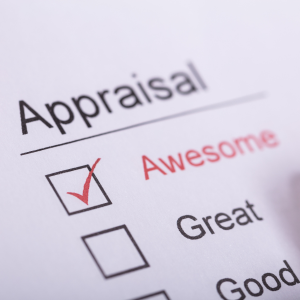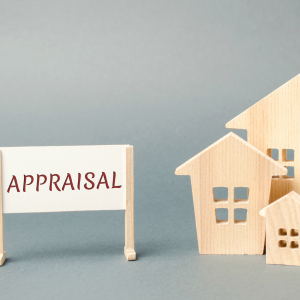
Understanding the Appraisal Process in Charlotte, NC
When closing on a property in Charlotte, NC, the appraisal process plays a critical role and can greatly influence the timeline. Understanding how appraisals work helps you buy or refinance a home without unnecessary delays. The process begins with ordering the appraisal and ends with reviewing the final report, each step impacting the pace of your transaction. For a smooth experience, it’s essential to work with knowledgeable real estate experts and maintain clear communication with your lender. Partnering with cash home buyers in Charlotte and surrounding North Carolina cities can also provide an alternative route, offering quicker transactions without many of the typical appraisal-related hurdles. By knowing what to expect and preparing the necessary paperwork in advance, you can help ensure the process moves efficiently and your home purchase or refinance stays on track.
Key Highlights
- Understanding the Charlotte appraisal process aids in navigating real estate complexities and ensures smooth transactions.
- Market conditions in Charlotte significantly influence the closing timelines for real estate transactions.
- Effective communication and preparation can streamline the final walkthrough and minimize potential closing delays.
- Appraisal report issues, such as discrepancies, can lead to significant closing delays in property transactions.
- Various solutions, including price adjustments, can address appraisal outcomes that influence closing processes.
Key Steps in the Home Appraisal

The home appraisal process is an essential component of real estate transactions in Charlotte, NC. Typically required by lenders, it ensures that the property’s value matches the proposed loan amount, protecting their investment. Understanding the key steps enables buyers and sellers to plan for what lies ahead. The lender orders appraisals through a third-party agency to ensure fairness, and a licensed appraiser conducts a thorough evaluation of the property.
During the appraisal, the appraiser reviews the home’s physical features, including size, location, and condition, along with recently sold comparable properties (comps). The on-site inspection evaluates both the interior and exterior, noting any repairs or upgrades that may influence value. Structural elements and modern systems, such as ventilation, are also taken into account. To better understand the steps that follow after an appraisal, you can explore how our process works, which outlines each stage clearly.
Following the inspection, the appraiser prepares a detailed report for the lender. This includes the property’s condition, a comparative sales analysis, and the final appraisal value. For buyers, the report can influence financing decisions, often resulting in negotiations. A lower-than-expected appraisal may necessitate a price adjustment by the seller in order to keep the transaction moving forward.
Finally, the appraisal report guides the subsequent steps. If the value equals or exceeds the purchase price, the transaction usually goes smoothly. If not, buyers and sellers may need to negotiate changes or concessions. Maintaining close communication with the lender ensures that any necessary actions are completed quickly, avoiding delays. A thorough understanding of this process boosts confidence and enables all parties to make informed decisions that support both short-term goals and long-term financial planning.
Factors Influencing the Closing Timeline
Understanding the factors that influence the closing timeline is critical for anyone involved in real estate transactions in Charlotte, NC. Several factors, including fluctuating market conditions and specific financial protocols, can speed up or slow down the process. You’ll learn about market conditions, how to effectively communicate with agents, and how to anticipate potential delays. Recognizing these influences can help streamline the closing process, resulting in a smoother transition from appraisal to final sale.
Market Conditions and Their Impact on Closing
The Charlotte, NC, real estate market strongly impacts property sale closing dates. Buyer’s or seller’s markets affect transaction speed after an appraisal. High property demand in a seller’s market speeds closing. Buyers may want to close faster to secure a property, forcing all parties to act faster. Buyer’s markets can cause delays. Due to their leisure, buyers can negotiate and communicate with sellers and agents longer.
Economic factors like interest rates affect market fluctuations. Lower interest rates increase buyer competition and may speed closing. As interest rates rise, fewer buyers may compete for properties, increasing closing times. Lenders are crucial because they may require additional documents or thorough checks that delay the process.
Multiple offers can affect the timeline. Seller choice is crucial. Offer evaluation takes longer, especially with contingencies. Offers that require the buyer to sell their home can delay the process. Despite market conditions indicating faster turnover, financial institutions may experience bottlenecks that slow appraisal and closing in high-demand periods. These examples show how important agent, lender, and buyer communication is.
Economic forecasts and seasonal market volatility affect deal closing speed. More real estate transactions and longer appraisal and closing times occur in spring and summer. Seasonal supply and demand can delay closing and stall financial processes. Therefore, anticipating and preparing for these variances can reduce delays.
Planning ahead and maintaining clear communication with all parties is key to preparing for market shifts. Buying or selling property requires a solid understanding of trends and projections. Partnering with experts ensures smoother closings and faster problem-solving. If you’re navigating these changes, Zack Buys Houses can help you stay prepared, manage documents, and respond quickly to shifting conditions.
How Long Each Closing Step Takes
Understanding the timing of each closing step is critical for anyone involved in a real estate transaction. In Charlotte, NC, the path from appraisal to final walkthrough can be complicated, requiring coordination among multiple parties. Knowing how long each stage takes, from initial appraisal to final negotiations, can help buyers and sellers plan accordingly. If you need to sell an inherited house, we’ll go into more detail about this timeline, describing the steps involved and how things like market conditions, money issues, and good communication with agents can all affect how quickly the deal closes.
From Appraisal to Final Walkthrough
After the appraisal, several steps must be completed before the closing. The report informs the lender’s decision, and open communication between the buyer’s agent and the lender aids in problem resolution. The report usually takes one to two weeks to complete, during which time all parties should be proactive.
The final walkthrough is typically performed a few days before closing. This enables the buyer to confirm the property’s condition, verify repairs, and address any new issues. If problems arise during the appraisal or walkthrough, repairs, concessions, or negotiations may be required, potentially delaying the closing.
Financing is also important. Following the appraisal, the lender will review the report along with the buyer’s financial documents during underwriting, which can take two to three weeks. Keeping in touch with the lender and submitting documents on time helps to keep the process moving forward.
All steps culminate in closing day, when documents are signed and funds are exchanged. Buyers and sellers in Charlotte can smoothly transition from appraisal to closing with strong communication, financial readiness, and proactive planning.
Common Causes of Closing Delays

Closing a property in Charlotte, NC, often comes with challenges that can cause delays. Potential sticking points include mortgage problems and appraisal report issues. Understanding these factors helps buyers and sellers prepare more effectively for a smoother process. Clear communication with lenders is critical, as they help participants navigate this complex journey. Identifying and addressing common causes of delays, such as paperwork issues and appraisal discrepancies, can prevent setbacks and ensure a successful transaction.
Issues with Appraisal Reports
The appraisal process is an important part of purchasing or refinancing a home in Charlotte, NC, but it can cause closing delays if problems arise. Appraisals confirm a property’s market value, so lenders do not approve loans that exceed the home’s worth. When problems arise, such as valuation discrepancies, report errors, or insufficient comparable sales, they can stymie the process and delay mortgage approval.
One common issue is when the appraised value is lower than the purchase price. This may force buyers and sellers to renegotiate or require the buyer to pay a larger down payment. Such disputes can cause delays and, in some cases, necessitate a second appraisal.
Errors in appraisal reports also cause setbacks. Mistakes in property details, missing updates, or poor comp selections can cause lenders to pause approval until the issues are resolved. Ensure thorough, accurate reporting from the start to avoid these delays.
Finally, Charlotte’s busy market can cause appraisal timelines to be extended, particularly when demand is high or revisions are required. Staying proactive, having documents ready, and maintaining close communication with the lender are critical to avoiding unnecessary delays. Buyers and sellers can navigate the appraisal stage smoothly and close with fewer obstacles if they plan ahead of time and collaborate.
How to Speed Up the Closing Process After Home Appraisal
Several strategic actions can be taken to expedite the closing process following a home appraisal. From effective communication with your lender to ensuring that all necessary documents are in order, each step contributes to a smoother transaction. Buyers and sellers can reduce delays by streamlining the process and planning ahead of time for potential obstacles. In this context, understanding the nuances of the final walkthrough is critical. This critical step ensures that the property’s condition is consistent with the agreed-upon terms, paving the way for a successful closing.
| Key Process | Action Steps | Communication Strategies | Timing Considerations |
|---|---|---|---|
| Document Review | Verify all documents for accuracy | Regular updates with the closing team | Initiate immediately after appraisal |
| Negotiation | Address appraisal discrepancies | Engage both buyer and seller agents | Prioritize promptly to avoid delays |
| Final Walkthrough | Inspect the property condition | Confirm with buyer any last-minute issues | Schedule within 24 hours of closing |
| Funds Transfer | Ensure all closing costs are accounted for | Coordinated confirmation with the lender and the bank | Confirm funds available on closing day |
This table highlights essential actions and coordination efforts during the final walkthrough to ensure a successful home closing.
Streamlining the Final Walkthrough
The final walkthrough is a critical step in the home-buying process, taking place shortly before closing. Its purpose is to ensure that the house is in the agreed-upon condition and that any negotiated repairs are complete. A successful walkthrough helps to avoid last-minute surprises that could cause closing delays, so buyers, sellers, and their agents must plan and communicate effectively.
Prior to the walkthrough, buyers and sellers should ensure that all repair agreements have been documented and completed, with receipts available. Coordinating with contractors and confirming that the work is completed correctly reduces the likelihood of disputes and ensures that everyone is on the same page before the walkthrough begins.
The timing of the walkthrough is also important. It usually happens a few days before closing, after repairs are completed. This allows buyers enough time to thoroughly inspect the property while still leaving room to resolve any issues. If problems arise, such as incomplete repairs or new damages, agents usually negotiate solutions, which may include financial concessions or putting funds in escrow until repairs are completed.
During the walkthrough, buyers ensure that the home is free of the seller’s belongings, that appliances and systems are operational, and that utilities such as heating, cooling, and plumbing function properly. Sellers can assist by keeping the property clean and presentable, indicating readiness for transfer. Both parties can complete the walkthrough smoothly and confidently by preparing ahead of time, communicating openly, and coordinating effectively.
Preparing for Closing Day

In Charlotte, NC, preparing for closing day requires meticulous planning and open communication with all stakeholders. One of the most important aspects of this process is understanding the roles of the lender and yourself to ensure a smooth transition from appraisal to closing. This section will provide a thorough understanding of critical procedures, such as completing financial arrangements and gathering necessary documents. By focusing on these areas, you will be better prepared to manage and possibly reduce closing costs on the big day.
Checklist for a Smooth Closing
Closing a property in Charlotte, NC, takes careful planning, not just paperwork. Staying in touch with your agent, lender, and attorney while confirming loan details and disclosures helps keep things on track. For a quicker option, investor home buyers in Greensboro and other cities in North Carolina can simplify the process and speed up closing.
Another critical step is to examine property documents. Buyers should double-check the deed, title insurance, and other paperwork to ensure accuracy and that there are no outstanding liens or encumbrances. Identifying any issues early is important for avoiding delays. Checking that property taxes and homeowner’s insurance are current also helps ensure a smooth ownership transfer.
Physical readiness of the home is also essential. Buyers should ensure that all agreed-upon repairs are completed, systems are operational, and appliances or fixtures are still in place. A final walkthrough ensures that the property is in the expected condition and that all utilities are ready for transfer. This step gives you peace of mind that no last-minute issues will derail the closing.
Finally, planning for the practical aspects of the move is crucial. To avoid delays, coordinate movers, transfer utilities, and confirm closing-day logistics such as time, location, and required identification. Closing day, rather than being a source of stress, can become a seamless milestone in your real estate journey with thorough preparation, open communication, and careful attention to detail.
After the Appraisal: Common Scenarios
In the real estate industry, the period following a home appraisal is marked by both anticipation and careful planning. Understanding both positive and challenging scenarios is critical after the appraisal has been completed. Various appraisal outcomes can impact the closing timeline, affecting both buyers and sellers. Common scenarios include meeting, exceeding, or failing to meet the property’s anticipated value. Each has specific solutions that can be implemented to ensure smoother transitions. Navigating these outcomes necessitates a thorough understanding of market conditions, open communication with lenders, and proactive problem-solving to effectively address potential setbacks.
Possible Appraisal Outcomes and Solutions
Understanding possible appraisal outcomes is critical in Charlotte’s real estate market because they have a direct impact on closings. When an appraisal matches or exceeds the sale price, the transaction usually proceeds smoothly, giving lenders confidence in the loan amount. If the appraisal falls short, buyers and sellers must close the gap before the transaction can be completed.
A low appraisal frequently necessitates renegotiating the sales price, splitting the difference, or increasing the buyer’s down payment. Buyers may request a reassessment in some cases by providing stronger comparable sales or highlighting previously overlooked property details. Real estate professionals play an important role in facilitating this process by providing accurate market data, while sellers can increase value by completing necessary repairs as noted in the appraisal report.
Buyers benefit from a higher-than-expected appraisal because it creates instant equity. However, it may cause sellers to reconsider the transaction, especially in a competitive market. In these cases, careful negotiation and clear contract terms help to avoid disputes and keep the transaction on track.
Appraisals typically take one week, but contingencies or underwriting conditions may cause the timeline to be extended. Staying proactive, maintaining open communication with lenders, and working with experienced local agents are the most effective ways to manage outcomes and avoid delays. Both buyers and sellers can navigate challenges and confidently close transactions with informed preparation.
FAQs:
What is the importance of understanding the appraisal process in Charlotte, NC?
Understanding the appraisal process is crucial as it can significantly influence the timeline for closing property transactions. It helps both buyers and sellers navigate the complexities of real estate transactions, ensuring smooth and efficient deals.
How can market conditions in Charlotte affect the closing timeline?
In Charlotte, NC, market conditions, such as whether it’s a buyer’s or seller’s market, can impact how swiftly transactions proceed after an appraisal. For instance, a seller’s market might expedite the process, while a buyer’s market could result in extended negotiations and delays.
What steps follow after a home appraisal in the buying process?
After a home appraisal, the report is analyzed by the lender. If the appraised value meets or exceeds the purchase price, the transaction usually proceeds smoothly. However, if the value is lower, negotiations for price adjustments or additional financing may be necessary.
What are common issues with appraisal reports that can delay closing?
Common issues include discrepancies in property value, errors in the report, or inadequate comparisons with similar properties. These issues can cause lenders to delay loan approval, requiring parties to resolve the discrepancies before proceeding.
How can effective communication streamline the closing process?
Effective communication among buyers, sellers, real estate agents, and lenders is essential. It ensures that all parties are aware of any issues or requirements needed to resolve potential delays, ensuring a timely transition from appraisal to closing.
Helpful Charlotte Blog Articles
- Sell Your Charlotte, NC, Home To A Real Estate Developer
- Discover Charlotte, NC’s Top Neighborhoods
- How Long After an Appraisal Can You Close in Charlotte, NC
- How to Handle the Sale of a Rental Property in Charlotte, NC
- Selling a House Divorce in Charlotte, NC
- Selling a House with Foundation Problems in Charlotte, NC
- Do I Need to Paint My House in Charlotte, NC, to Sell It?
- Can I Sell My House Below Market Value in Charlotte, NC?
- What Taxes Do I Have to Pay When I Sell My House in Charlotte, NC?

